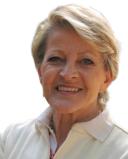Confidence
Playing the ‘Inner Game’ in a VUCA World
Living in a world of volatility, uncertainty, complexity, and ambiguity.
Posted February 17, 2020 Reviewed by Lybi Ma
The more we hear about challenges we are facing as individuals, nations or organizations, the more we notice the acronym VUCA – volatility, uncertainty, complexity, and ambiguity. There is no doubt that this is the world we are living in, whatever our role or position.
Increased rates of international interconnectedness, urbanization, technological advances, migration and destruction of our planet, demand new understanding, awareness—critical thinking skills. It would be wrong to assume that it is just a leaders’ task to develop these new competencies. In reality, everybody is a leader in their own lives, choices, and decisions, and we are all responsible to be good leaders in our leadership roles, at home, at work, in the communities we belong to.
The good news is that we can all learn to use our head, our heart, and our body in mindful ways to thrive in this VUCA world:
Use your head
With our head, we can develop our knowledge of what is happening, learn about our natural and social environment, about the positive use of technology, and take responsibility. The VUCA world needs citizens with a critical mind, who can distinguish between facts and propaganda, who cross-check information and news, who look for the other perspectives. We can stop and reflect on events, reactions, and behaviors.
One of the problems we have with our head is that our brain is extremely lazy and fast. System 1 takes over and does not question. We immediately categorize, judge, and condemn. Though these quick reactions saved the lives of our forefathers, we don’t live in the midst of dangerous animals or unknown plants anymore. In fact, our evolution was too fast for our primitive brain that has not had a chance to adapt yet. As our world is changing, complex and ambiguous, we cannot really trust our System 1.
The most important thing we need to learn is to stop and reflect, think again and activate our System 2. System 2 is critical and makes us think: “Wait a minute, is that right?”
Use your heart
Motivation and curiosity are matters of the heart. In a VUCA world, nothing is stable. We need to be able to adapt to change and live with uncertainty and setbacks. This entails self-confidence and self-efficacy.
Self-efficacy means that we believe in ourselves and believe we can manage and master a situation. When we don’t believe we are capable of overcoming obstacles, of understanding and accepting challenges, we will not gain the experience we need. When we persevere and don’t give up our self-confidence grows. And when we fail, as we are bound to do, our CQ tells us to reengage, to become even more motivated to learn from failure.
A positive attitude towards different people, different or new events and challenges strengthens our self-confidence and our self-efficacy. This is why, we encourage young leaders to network globally, take on challenging business projects and immerse themselves in different cultures for a significant period of time.
Use your body
One of the greatest strengths of culturally intelligent people is the ability to listen to understand, really understand, instead of listening to hear.
Yet again our brain is too fast and as soon as we hear an opinion it is busy building a smart reply. Sometimes we impatiently jump in before our conversation partner has finished talking. The same happens when we hear about an event, a change, a news story.
Do we really take time to really understand what it means, where it comes from and who communicates it? This leads us back to the use of our head and our critical sense.
Play the inner game
One of the books that have had a profound impact on me is The Inner Game of Tennis by Timothy Gallwey (1974). I was lucky enough, and curious enough, to find the book early on, although I wasn’t interested in improving my tennis skills. What attracted me was the importance of the mind on whatever we do. The book teaches that it all starts in the mind, as well as teaching self-efficacy and self-confidence.
At the time, I was also interested in the role of imaging (creating an image in the mind): for Gallwey it was imagining a correct strike before doing it, but this applies to all tasks we have to perform, imagining it performed the best way.
In the same period, I worked with an osteopath. He introduced me to the “Alexander Technique”, developed by FM Alexander, an actor in Australia in the 1890s. The method is highly successful in re-educating posture and improving the use of the whole body and mind. What struck me was that the method also asks you to imagine the movement on one side after having done it on the other side. Using your mind’s memory and imaging capabilities to re-experience the effect. The inner game.
The brain may try to cheat us with System 1, but at the same time, we can learn to play this inner game with the head, heart, and body, to expand our capabilities, cultural intelligence and critical thinking in this complex, ambiguous world.
References
Gallwey, W. T. (1974). The inner game of tennis.
https://www.sciencedirect.com/topics/medicine-and-dentistry/alexander-t…




